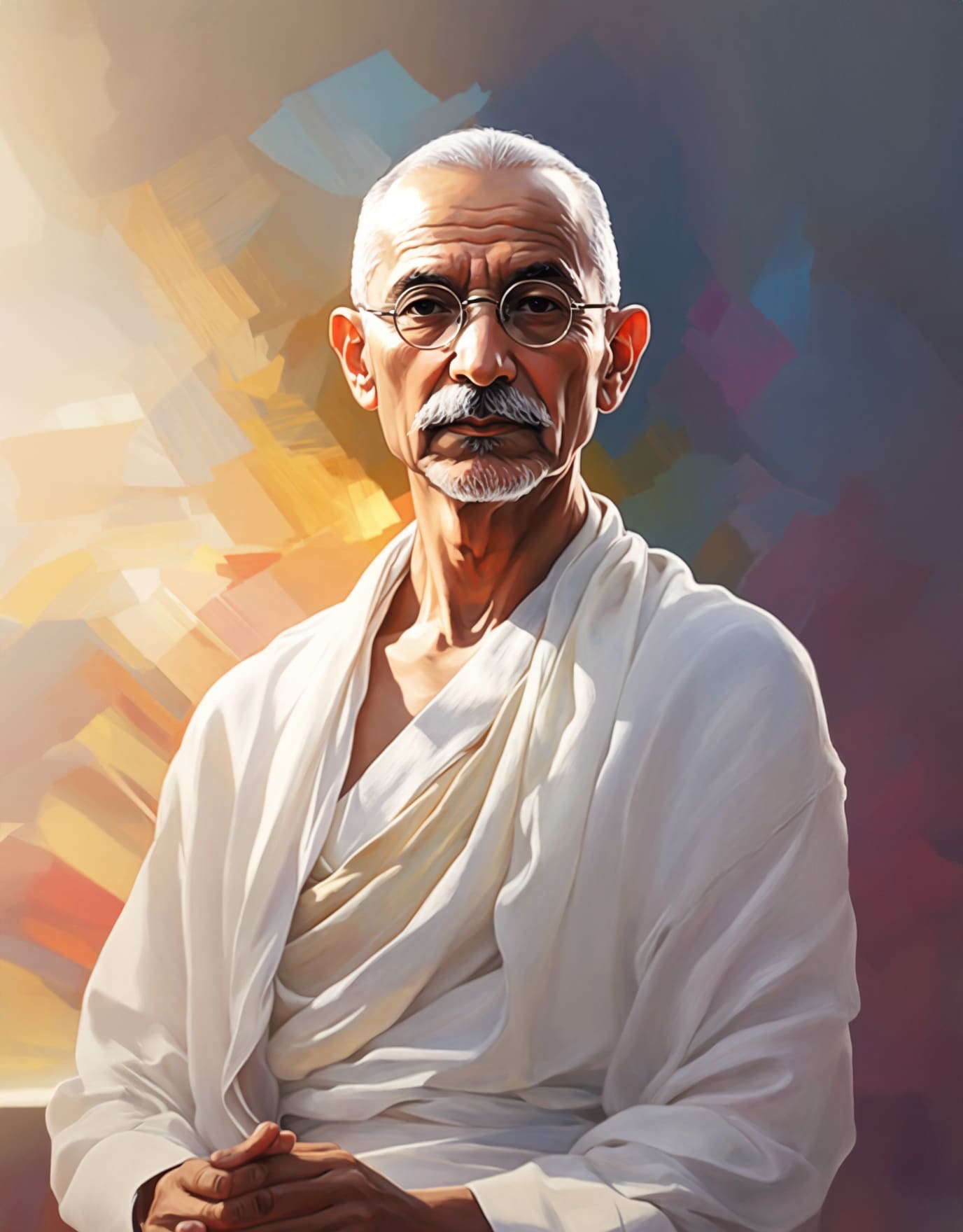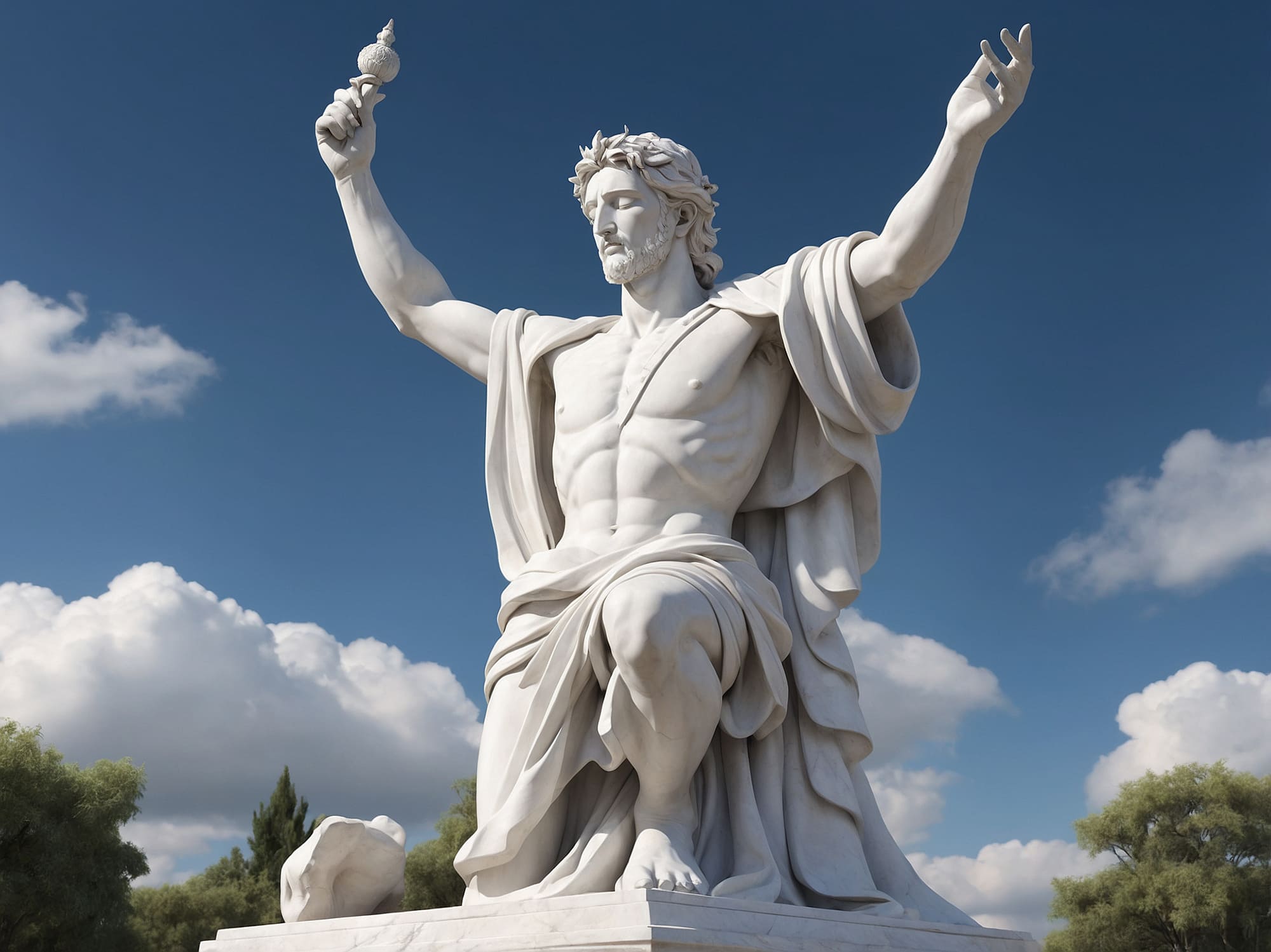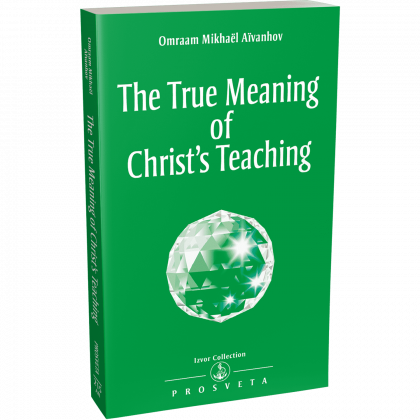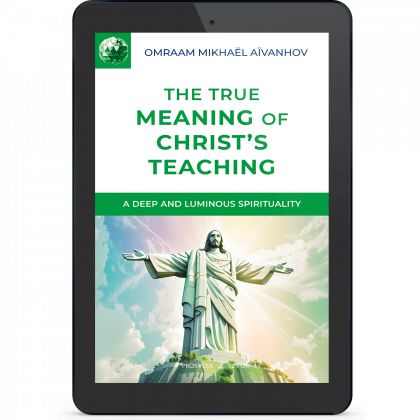The issue of non-violence
A philosophy that must become collective
'Jesus said, ‘I came not to send peace, but a sword.’ And doesn’t this mean that Jesus was in favour of violence? It does! But we have to understand what kind of violence. Jesus waged war on the powers of darkness, on everything black and vile, with the awe-inspiring power of light, love and wisdom.
In this connection there is a lot that could be said about non-violence as Gandhi taught it. At that particular time and in those particular historical circumstances, it was a magnificent policy which enabled the Indians to shake off the yoke of British rule. But, generally speaking, non-violence can be a dangerous policy for a country to adopt, for if it is alone in doing so it runs the risk of being swallowed up by the others. The philosophy of non-violence becomes the ideal solution only when all humankind decides to embrace it. Otherwise, there will always be a cruel, egotistical neighbour ready to pounce on the poor, unfortunate bodies who refuse to defend themselves, and wipe them out.
Non-violence is an excellent philosophy for someone who is determined to tame their lower nature and is ready to sacrifice themselves in order to advance more rapidly. But it cannot solve the problem of war in the world. A nation that decides not to defend itself will be wiped out in short order, both economically and physically.
So what is needed now is for the philosophy of non-violence to become collective, world-wide, universal, to spread throughout the whole of humanity and no longer exist only in the minds of a handful of idealists. Until and unless non-violence becomes a collective ideal, it will be powerless to change anything.
How many people who have wanted to give an example of selflessness have been sent to their death... and is humanity any the better for it? So the ideal has to spread to the whole world. A philosophy such as this can be excellent if it is shared by an entire population and dangerous if it remains a purely individual ideal. Although, it is true, of course, that even as an individual ideal it still has positive value. All the saints and martyrs, all the heroes who sacrificed themselves in the past, come back to earth with great gifts and qualities which they can use to influence others for good.
But the fact remains that this question of non-violence will never be satisfactorily resolved until it becomes a universal, world-wide policy.'
'Jesus said, ‘I came not to send peace, but a sword.’ And doesn’t this mean that Jesus was in favour of violence? It does! But we have to understand what kind of violence. Jesus waged war on the powers of darkness, on everything black and vile, with the awe-inspiring power of light, love and wisdom.
In this connection there is a lot that could be said about non-violence as Gandhi taught it. At that particular time and in those particular historical circumstances, it was a magnificent policy which enabled the Indians to shake off the yoke of British rule.
But, generally speaking, non-violence can be a dangerous policy for a country to adopt, for if it is alone in doing so it runs the risk of being swallowed up by the others. The philosophy of non-violence becomes the ideal solution only when all humankind decides to embrace it. Otherwise, there will always be a cruel, egotistical neighbour ready to pounce on the poor, unfortunate bodies who refuse to defend themselves, and wipe them out.
Non-violence is an excellent philosophy for someone who is determined to tame their lower nature and is ready to sacrifice themselves in order to advance more rapidly. But it cannot solve the problem of war in the world. A nation that decides not to defend itself will be wiped out in short order, both economically and physically.
So what is needed now is for the philosophy of non-violence to become collective, world-wide, universal, to spread throughout the whole of humanity and no longer exist only in the minds of a handful of idealists. Until and unless non-violence becomes a collective ideal, it will be powerless to change anything.
How many people who have wanted to give an example of selflessness have been sent to their death... and is humanity any the better for it? So the ideal has to spread to the whole world.
A philosophy such as this can be excellent if it is shared by an entire population and dangerous if it remains a purely individual ideal. Although, it is true, of course, that even as an individual ideal it still has positive value. All the saints and martyrs, all the heroes who sacrificed themselves in the past, come back to earth with great gifts and qualities which they can use to influence others for good.
But the fact remains that this question of non-violence will never be satisfactorily resolved until it becomes a universal, world-wide policy.'




